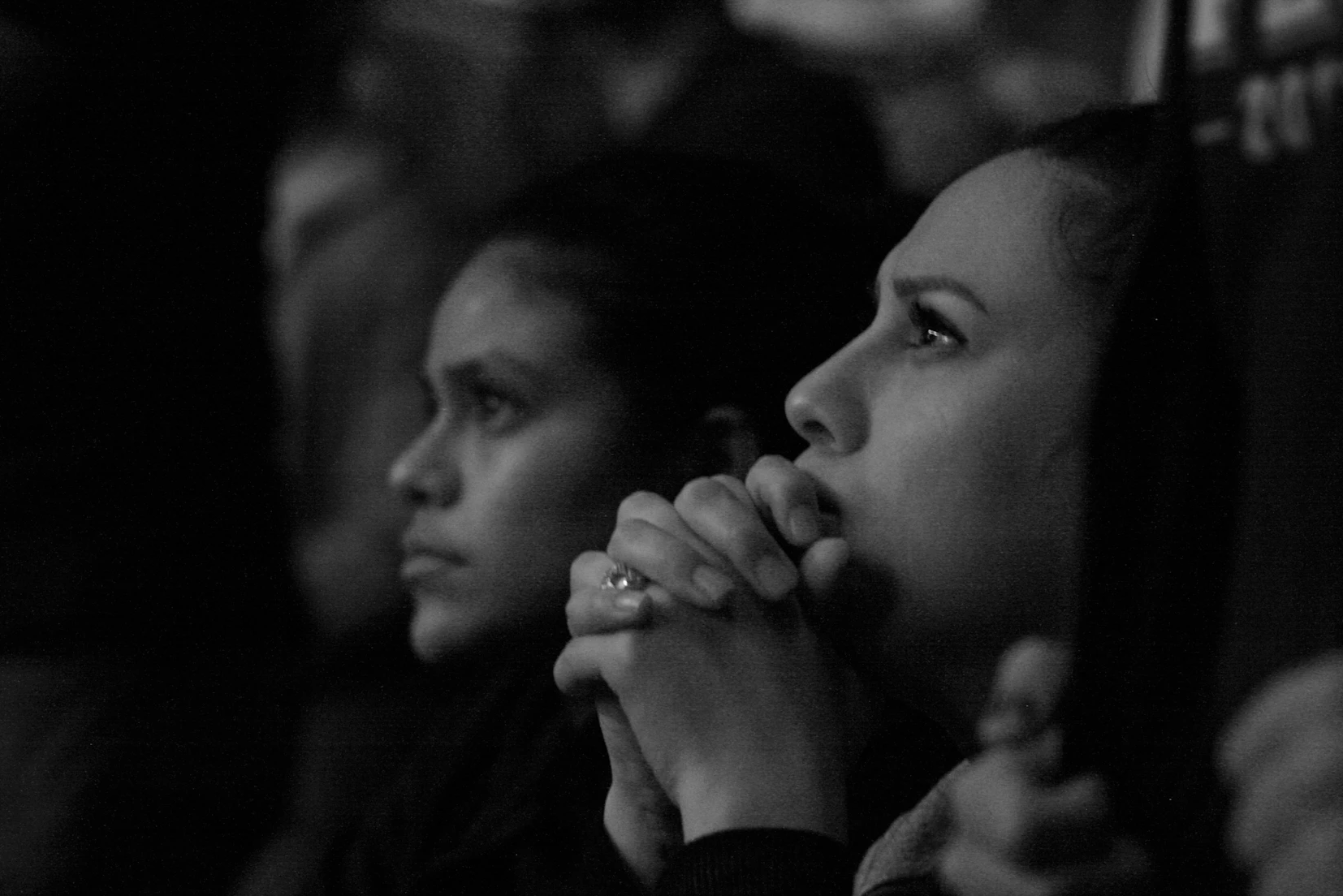

Every now and then, it is good to be reminded that God doesn’t call any of us into ministry, professional or otherwise, because we’re good at it. A quick glance through the Scriptural address book of God’s chosen is humbling: not a valedictorian among them, not a single CEO on the list. God reliably seeks the unlikeliest candidate available, and zooms in. Abraham and Jacob, scumbags both, were chosen to sire a nation and to establish Israel, respectively. Moses – murderer on the lam – was so unprepared to meet Pharaoh that God gave him a multi-talented team. David, the youngest of a strapping band of brothers, was so unlikely to be chosen king that he wasn’t even invited to the anointing party. Weepy Jeremiah was chosen for prophetic leadership before he was born, and therefore before there was any evidence whatsoever that he was cut out for this kind of thing. And Mary, an unwed pregnant preteen from a poor family (and a woman, let’s not forget), got the biggest assignment of them all: mother of God, theotokos – not exactly a story people were likely to believe.
We are in excellent company.
Innovation as a Trojan Horse?
As we fumble around, figuring out our plans for doing ministry differently, this conversation about Christian social innovation should not sit too easily. We are always in danger of inviting Trojan horses into the sanctuary, elevating excellence over discipleship, production over prayer, heroism over humility. It is not always clear whether we are being a prophet or a pied piper; both promise people better futures, and both sound a little crazy. How do we know whether this wilderness leads anywhere, much less to freedom—or if it’s time to pack up the timbrels and return to Egypt, where our worth is easily measured by the quality of our bricks? The learning curve for anything new is steep, even when it grows out of a long heritage. What if we dance with the wrong partner, succumb to the sirens, or fail to recognize the big bad wolf? Worse, what if we inadvertently contribute to the soul-crushing patterns of life that we earnestly want to disrupt, by creating yet another way to be more efficient and effective? What if all this work in innovation moves us further away from God, and makes churches more dysfunctional, not less?
Short of being sealed in a hermitage (a weird but faithful choice for some), I know of no way to avoid such risks in ministry. More than one ministry has been funded by a Ponzi scheme, and countless cults have smuggled the seeds of treachery inside good intentions. It is always seductive to want to “maximize our potential” (think of all the good we could do) instead of nurturing a vision of “the good life” that Jesus refused to equate with productivity. And, by way of reminder, being a dysfunctional faith community has not, so far, stopped God from working through them. Faith is as likely to take root amid turmoil as tranquility, and God is a famous upcycler. Humans, after all, came from mud.
Every paradigm shift that has confronted the church – the persecution and then legalization of Christianity, the mystics’ move to the desert, monasticism’s development as communities, the Protestant Reformation’s endorsement of married clergy, the disestablishment of religion in the United States, to name a few – has had economic, social, and political consequences that altered church practices and changed the way Christians approach the surrounding culture. The answers change, but the church’s question is always the same: “How might we become Christ’s body—the embodiment of God’s love for the world—for people in these particular conditions, at this particular moment in time?”
Our Loss Is Our Paradigm’s Gain
I believe the American church is experiencing the birth pangs of a paradigm shift, as monumental changes both within the church and the broader culture are decisively altering the ways we relate to faith and to one another. COVID-19 was not the origin of this shift—we have smelled it coming for decades—but the pandemic became the point when the cracks became visible even to people outside of churches. The question is whether this is also the moment that future generations will point and say, “That was the time. That was when things changed: a crack opened, and love rushed in. That was the moment when God started using churches in a new way.”
In some ways, this period of loss in the church has made us more like the church Jesus calls us to be than we have been in centuries. The ark has taken a beating, to be sure. We’re still recovering from shipwreck, figuring out what to repair and what to replace. We have washed up in an unfamiliar cultural shore. Our boat is full of holes and our compass is broken, and strangers are headed our way.
I am inviting us to see all of this as a divine gift. Change has found us. To paraphrase Frodo Baggins, there is no going back to the shire—for even if we were to find it unchanged, we are not the same.
Want More? FREE Webinar!
Join Dr. Kenda Creasy Dean for a one-hour FREE Webinar “Don’t Start With ‘Why’” – hosted by Vibrant Faith’s Rick Lawrence, on Thursday, September 19 – 4-5 p.m. EST (3-4 CST, 2-3 MST, 1-2 PST). SAVE YOUR SEAT HERE!
Help Is On the Way!
Fall is fast approaching, and we innovative, practical resources that will help you infuse your ministry environment with “rich soil” for transformation. First up, Following Jesus is a curriculum resource you can use with both adults and teenagers in your church this fall—help them explore what an ABIDING/REMAINING relationship with Jesus is like. It’s an experiential, highly interactive, co-discovery way to invite people into deeper intimacy with Jesus. And The Life of Jesus TalkCards is a simple, devotional way to invite small groups into the heart of Jesus.
 Dr. Kenda Creasy Dean is an ordained United Methodist pastor in the Greater New Jersey Annual Conference, and the Mary D. Synnott Professor of Youth, Church, and Culture at Princeton Theological Seminary. In addition to teaching in practical theology, education, and formation (specifically youth and young adult ministry, Christian social innovation, and theories of teaching), Dean works closely with Princeton’s Institute for Youth Ministry and the Farminary. Dean is the author of numerous books, including Almost Christian: What the Faith of Our Teenagers Is Telling the American Church (Oxford, 2010), Practicing Passion: Youth and the Quest for a Passionate Church (Eerdmans, 2004), and The Godbearing Life: The Art of Soul Tending for Youth Ministry with Ron Foster (Upper Room, 1998).
Dr. Kenda Creasy Dean is an ordained United Methodist pastor in the Greater New Jersey Annual Conference, and the Mary D. Synnott Professor of Youth, Church, and Culture at Princeton Theological Seminary. In addition to teaching in practical theology, education, and formation (specifically youth and young adult ministry, Christian social innovation, and theories of teaching), Dean works closely with Princeton’s Institute for Youth Ministry and the Farminary. Dean is the author of numerous books, including Almost Christian: What the Faith of Our Teenagers Is Telling the American Church (Oxford, 2010), Practicing Passion: Youth and the Quest for a Passionate Church (Eerdmans, 2004), and The Godbearing Life: The Art of Soul Tending for Youth Ministry with Ron Foster (Upper Room, 1998).
[activecampaign form=5]
 A Deeper Way to Lead Others Into Faith Maturity… Guide your people into depth relationally and experientially… A new curriculum by Rick Lawrence for both youth & adult ministries. Learn More Here
A Deeper Way to Lead Others Into Faith Maturity… Guide your people into depth relationally and experientially… A new curriculum by Rick Lawrence for both youth & adult ministries. Learn More Here

